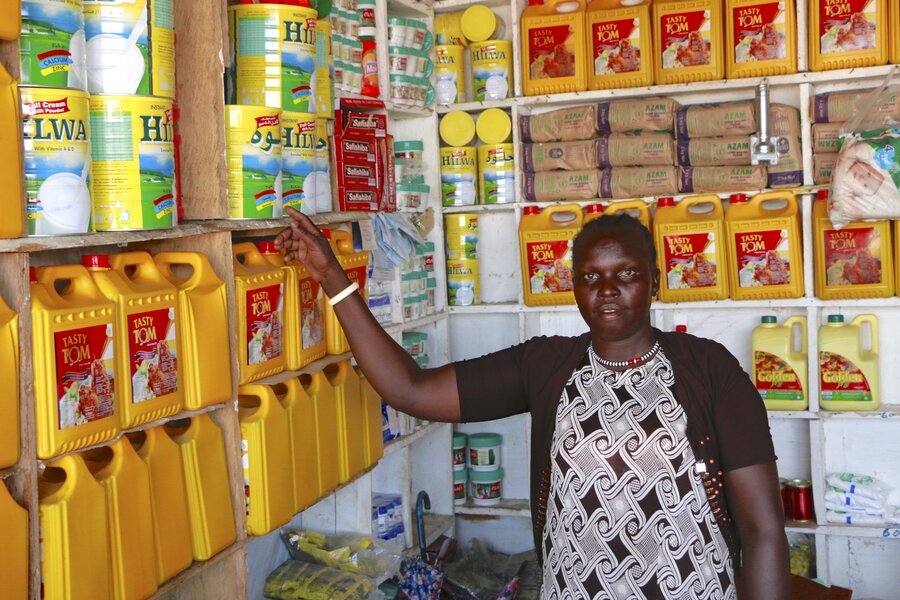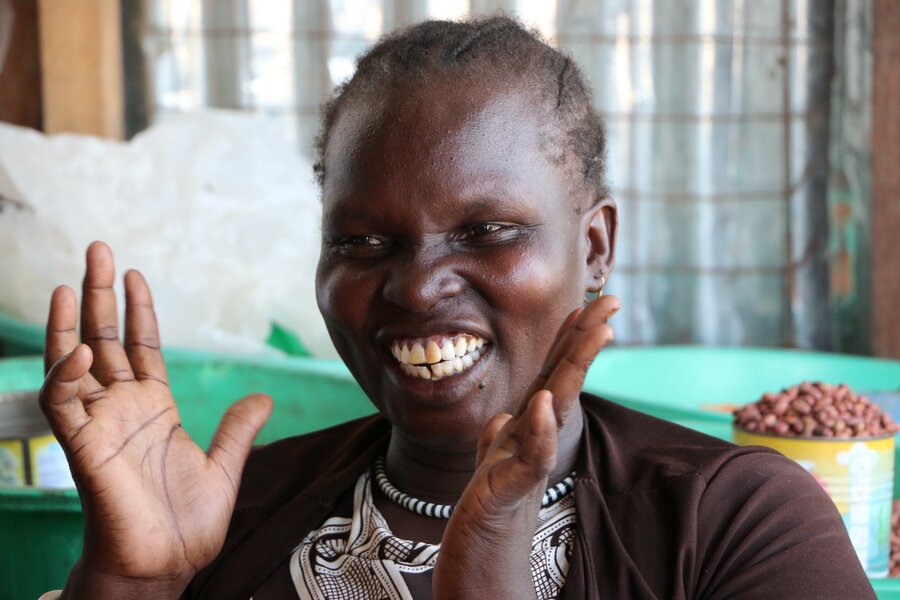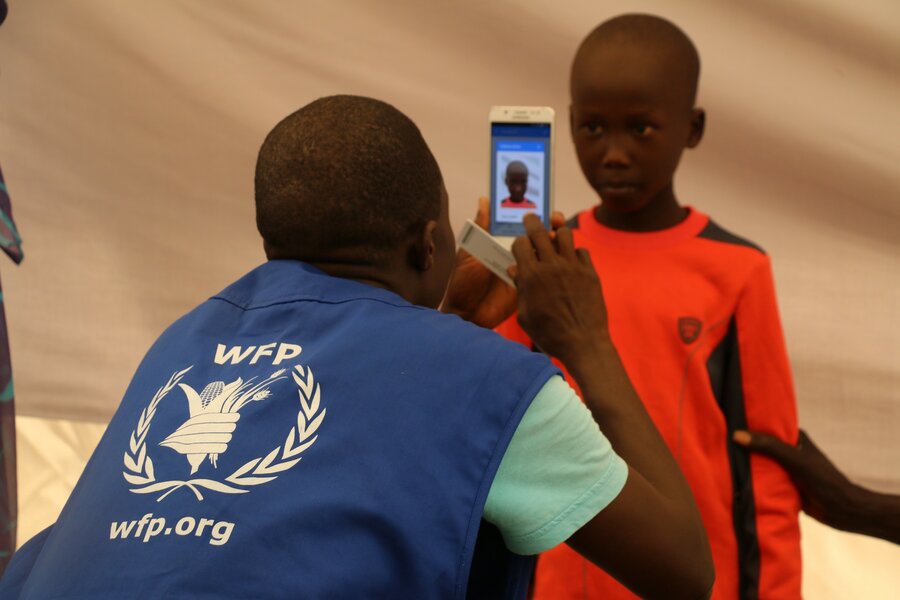Supporting South Sudan’s traders

Once, she relied on food assistance to survive, now she helps distribute it.
This is a story of how one woman has defied the odds and became a successful trader in an unforgiving city and country where one needs more than just hard work to succeed.
Thanks in part to the World Food Programme's cash assistance activities, Nyajiik Alier Mago has succeeded where many have dared to try but ultimately failed.
A strong woman of humble beginnings
Until recently, Nyajiik had lived life as an ongoing challenge. Orphaned at an early age, she has never been to a formal school and probably never will. All she knows has been learnt in what she calls the ‘university of life'.
She is self-taught and self-made.
Nyajiik is one of only four female retailers participating in the WFP cash assistance programme. Armed with a sharp business acumen that belies her education or lack thereof, her rise, fall, rise, fall and rise again story is a strong contender for the proverbial rags-to-riches tale.
Born 40 years ago in Baidut, a village some 200 km north of the capital Juba, Nyajiik, like many others before her, traveled from her rural home to nearby Bor town in search of a better life.
But times were hard. No sooner had she arrived in Bor did her dream of a city el dorado dissipate a bit more with each passing day.
Tough times
Conflict knocked her business out twice, and twice she had to build herself up again.
"I lost everything when fighting broke out in December 2013," she says. "Three years later, I again lost all my wares and money following renewed fighting in 2016."
The conflict took away her livelihood but did not kill her spirit.
With a little help from her husband in neighbouring Uganda, Nyajiik started her business up again, selling small items on a makeshift table under the shade of an umbrella.
And now, she is headed for the big time.
A new beginning

Nyajiik runs a shop at Marol market, the biggest and oldest market in Bor town, where traders sell various household items.
On any given day, the market is a hive of activity. Ox-drawn carts, vehicles, porters are all laden with various items. Nyajiik's shop is no different. It's bustling with people. The shop is filled to the brim with various commodities on display. Rice, wheat flour, maize-meal, sugar, salt, vegetable oil, beans, milk and cleaning items.
Whilst business was slow soon after the conflict, her fortunes turned when she became a WFP retailer in 2016.
"My clientele base grew substantially when I started redeeming WFP vouchers," she says. "Prior to that, business was slow and my profits were little."
Hundreds of families redeem their commodity vouchers for food items at her shop.
How cash transfers work

While WFP distributes food assistance to meet the food and nutritional needs of families, it is also increasingly using cash transfers. This includes physical money, bank transfers, paper or electronic vouchers or other electronic platforms like special SIM cards or debit cards.
In South Sudan, each household receives an electronic voucher redeemable for food at participating retail shops such as Nyajiik's. The value of the voucher is determined by the recipient household size. Each member of the household receives about 900 South Sudanese Pounds (US$ 6).
The money can be spent on ten items that have been pre-approved including sorghum, wheat flour, maize flour, rice — staples in most places of the country — as well as vegetable oil, lentils, beans, milk, salt and sugar at selected retailers.
The cash assistance is supported by SCOPE, WFP's beneficiary-facing digital platform with both online and offline capabilities to collect, manage and provide information so as to understand beneficiaries' needs, behavior and consumption patterns.
Multiple benefits
"In most cases cash has stimulated trade," says Adnan Khan, WFP's Country Director in South Sudan. "By injecting money into the local economy, cash transfers can create a virtuous circle of production and consumption. This fuels growth and in conflict-related settings such as ours, promotes economic rebirth."
So far in 2018, WFP has distributed US$ 17 million in cash transfers to hungry people where food is readily available on the market but people are too poor to buy it. With support from donors such as Australia, the United States of America, the United Kingdom and the European Union, WFP plans to expand cash transfer to reach more people where possible and increase the number of participating retailers.
For Nyajiik and many other retailers, use of cash transfers could not have come at a better time.
